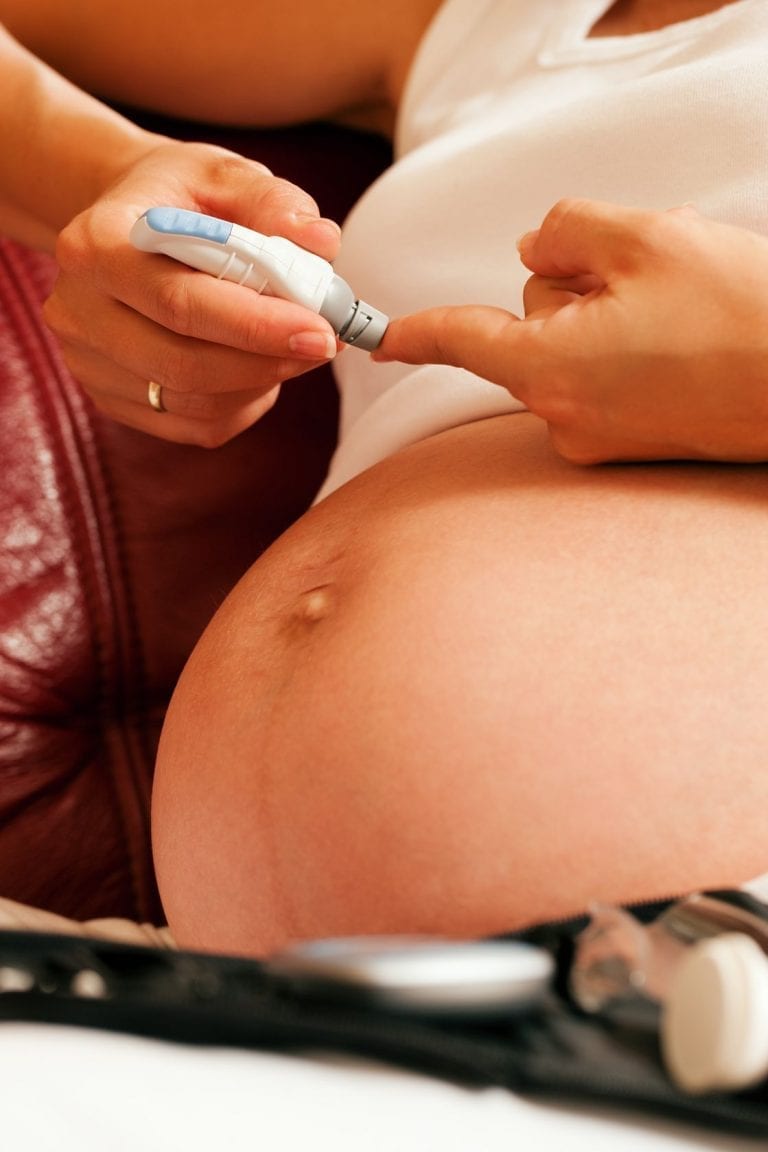Gestational diabetes is a form of high blood sugar that develops in pregnancy, and it can cause serious problems that put you and your baby at risk including:
- high blood pressure
- preeclampsia (a sudden, dangerous increase in blood pressure)
- pregnancy loss during the last 4 weeks to 8 weeks of pregnancy
- preterm labor and birth
- cesarean and its risks
When you eat, your body breaks food down into a sugar called glucose. This sugar passes into your bloodstream from your stomach, and a hormone called insulin acts like a key, unlocking cells so the glucose can go inside and be used for energy. Diabetes develops when insulin fails to move blood sugar into your cells, leaving it circulating in your bloodstream.
Every pregnancy is different. You can develop gestational diabetes in any pregnancy, and even if you’ve had it in a previous pregnancy, you may not have it with a subsequent pregnancy. If you’re diagnosed with gestational diabetes, you’ll need to closely control your diet and exercise to keep your blood sugars in norm ranges. Developing gestational diabetes puts you at risk for developing diabetes within 5 years.
Quiz: Are You at Risk for Gestational Diabetes?
Take this quiz developed by the experts at the National Institute of Child Health & Human Development to learn if you’re at risk for developing gestational diabetes. Check each box for which you can answer “Yes:”
- Are you overweight or obese?
- Are you related to anyone who has, or has had, diabetes?
- Are you Hispanic/Latina, African American, American Indian, Alaska Native, Asian American, or Pacific Islander?
- Are you older than 25?
- In a previous pregnancy, did you have any of these issues:
- Gestational diabetes
- Stillbirth or miscarriage
- Baby weighing more than 9 pounds
- Do you have polycystic ovary syndrome (PCOS)?
- Have you ever had problems with insulin or blood sugar, such as insulin resistance, glucose intolerance or “prediabetes?”
- Do you have high blood pressure, high cholesterol or heart disease?
Check Your Risk
| Total “Yes” answers | Your gestational diabetes risk is… | Your healthcare provider may… |
|---|---|---|
| 2 or more | High | Test as soon as you know you’re pregnant. If your first test is negative, test again between 24-28 weeks pregnant |
| 1 | Average | Test between 24-28 weeks pregnant |
| 0 | Low | May not test or will test between 24-28 weeks |
Blood Glucose Testing
- Testing typically occurs between weeks 24-28
- First test is the 1-hour glucose tolerance test (GTT); this involves drinking a sugary liquid and having your blood drawn 1 hour later to determine your blood sugar level. If all is well, you can typically finish pregnancy without further testing
- Additional testing is the 3-hour GTT, and you may need that if you don’t pass the 1-hour test. You’ll likely be asked to fast overnight, avoid caffeine, and don’t smoke 12 hours before testing. With the 3-hour GTT, your blood sugar levels are checked at 1, 2 and 3 hours.






Comments are closed.